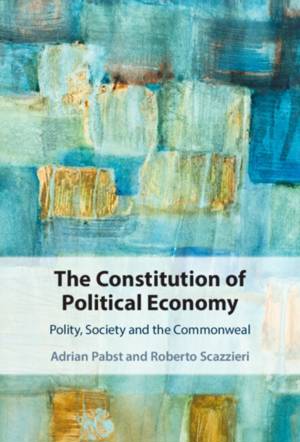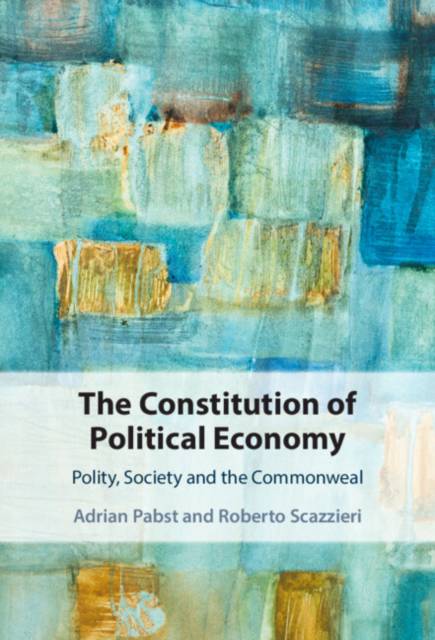
Bedankt voor het vertrouwen het afgelopen jaar! Om jou te bedanken bieden we GRATIS verzending (in België) aan op alles gedurende de hele maand januari.
- Afhalen na 1 uur in een winkel met voorraad
- In januari gratis thuislevering in België
- Ruim aanbod met 7 miljoen producten
Bedankt voor het vertrouwen het afgelopen jaar! Om jou te bedanken bieden we GRATIS verzending (in België) aan op alles gedurende de hele maand januari.
- Afhalen na 1 uur in een winkel met voorraad
- In januari gratis thuislevering in België
- Ruim aanbod met 7 miljoen producten
Zoeken
The Constitution of Political Economy
Polity, Society and the Commonweal
Adrian Pabst, Roberto Scazzieri
Hardcover | Engels
€ 180,45
+ 360 punten
Omschrijving
The two dominant conceptions of political economy are based on either reducing political decisions to rational-choice reasoning or, conversely, reducing economic structures and phenomena to the realm of politics. In this book, Adrian Pabst and Roberto Scazzieri contend that neither conception is convincing and argue for a fundamental rethinking of political economy. Developing a new approach at the interface of economic theory and political thought, the book shows that political economy covers a plurality of dimensions, which reflect internal hierarchies and multiple relationships within the economic and political sphere. The Constitution of Political Economy presents a new, richer conception of political economy that draws on a range of thinkers from the history of political economy, recognising the complex embedding of the economy and the polity in society. Effective policy-making has to reflect this embedding and rests on the interdependence between local, national, and international actors to address multiple systemic crises.
Specificaties
Betrokkenen
- Auteur(s):
- Uitgeverij:
Inhoud
- Aantal bladzijden:
- 290
- Taal:
- Engels
Eigenschappen
- Productcode (EAN):
- 9781108831093
- Verschijningsdatum:
- 17/08/2023
- Uitvoering:
- Hardcover
- Formaat:
- Genaaid
- Afmetingen:
- 152 mm x 229 mm
- Gewicht:
- 557 g

Alleen bij Standaard Boekhandel
+ 360 punten op je klantenkaart van Standaard Boekhandel
Beoordelingen
We publiceren alleen reviews die voldoen aan de voorwaarden voor reviews. Bekijk onze voorwaarden voor reviews.









